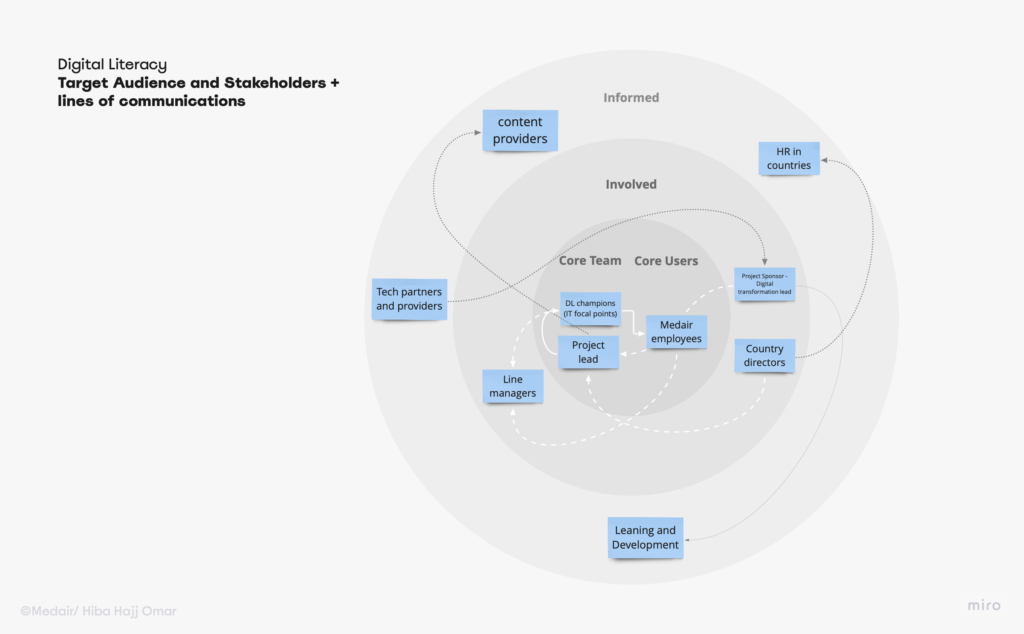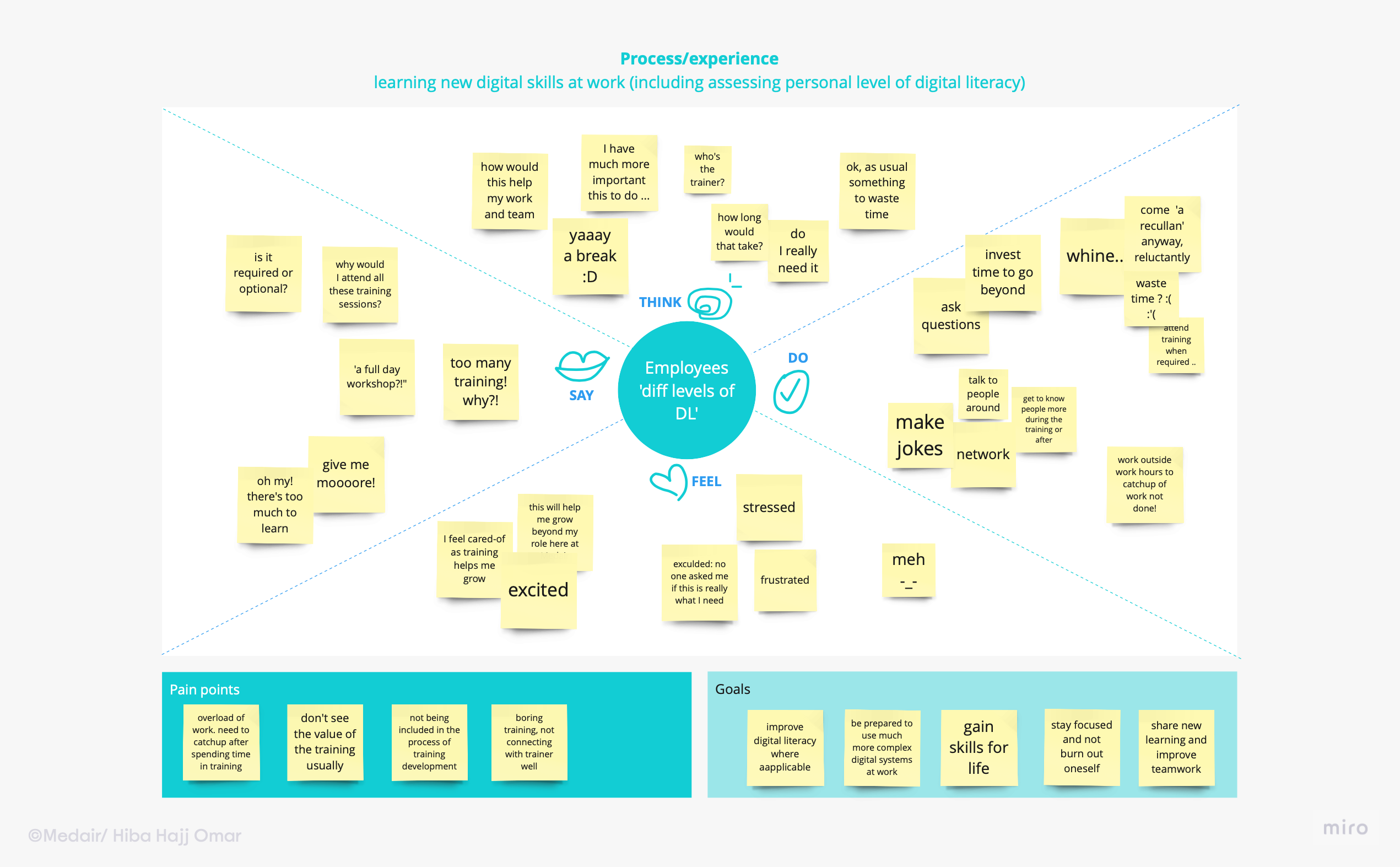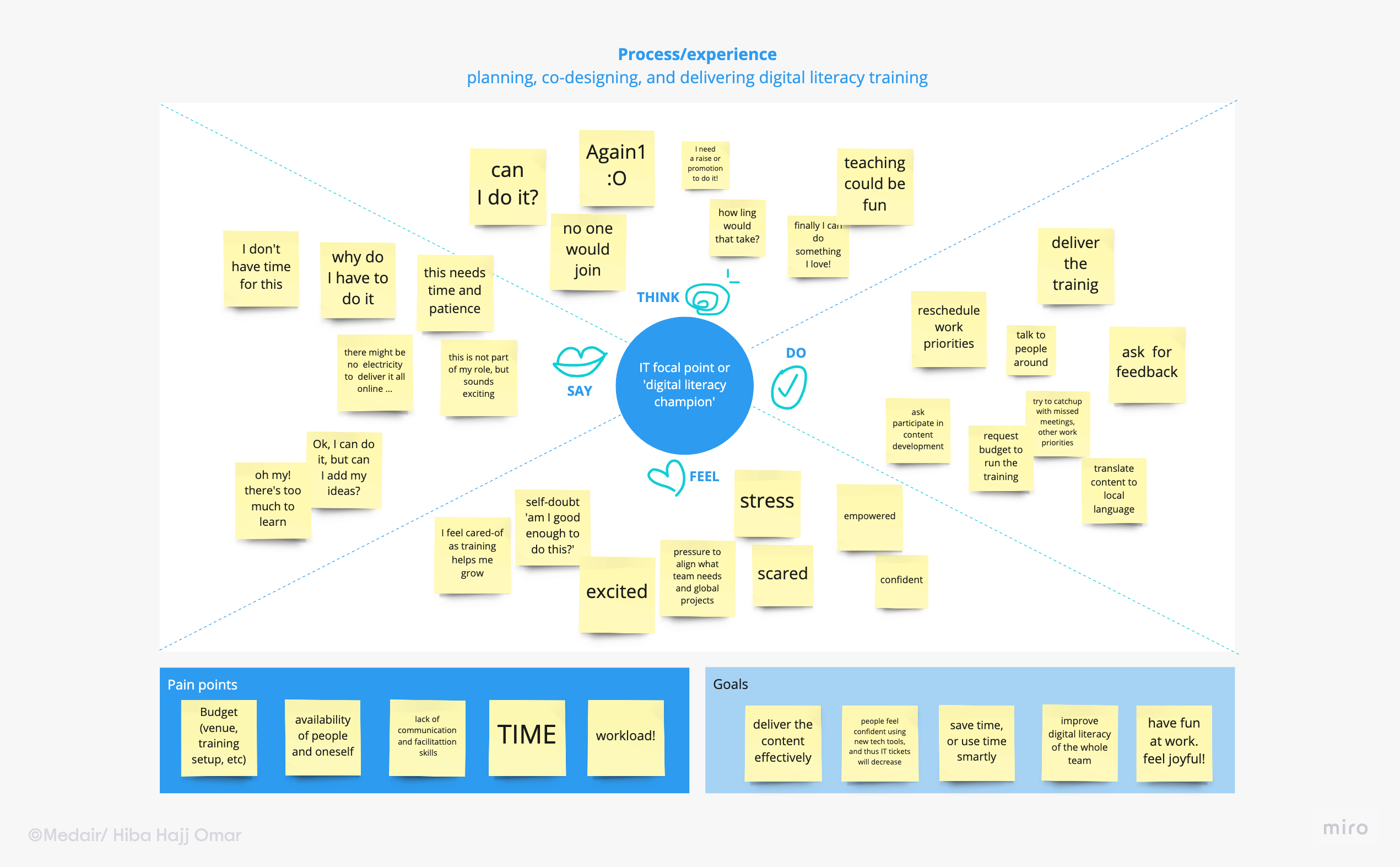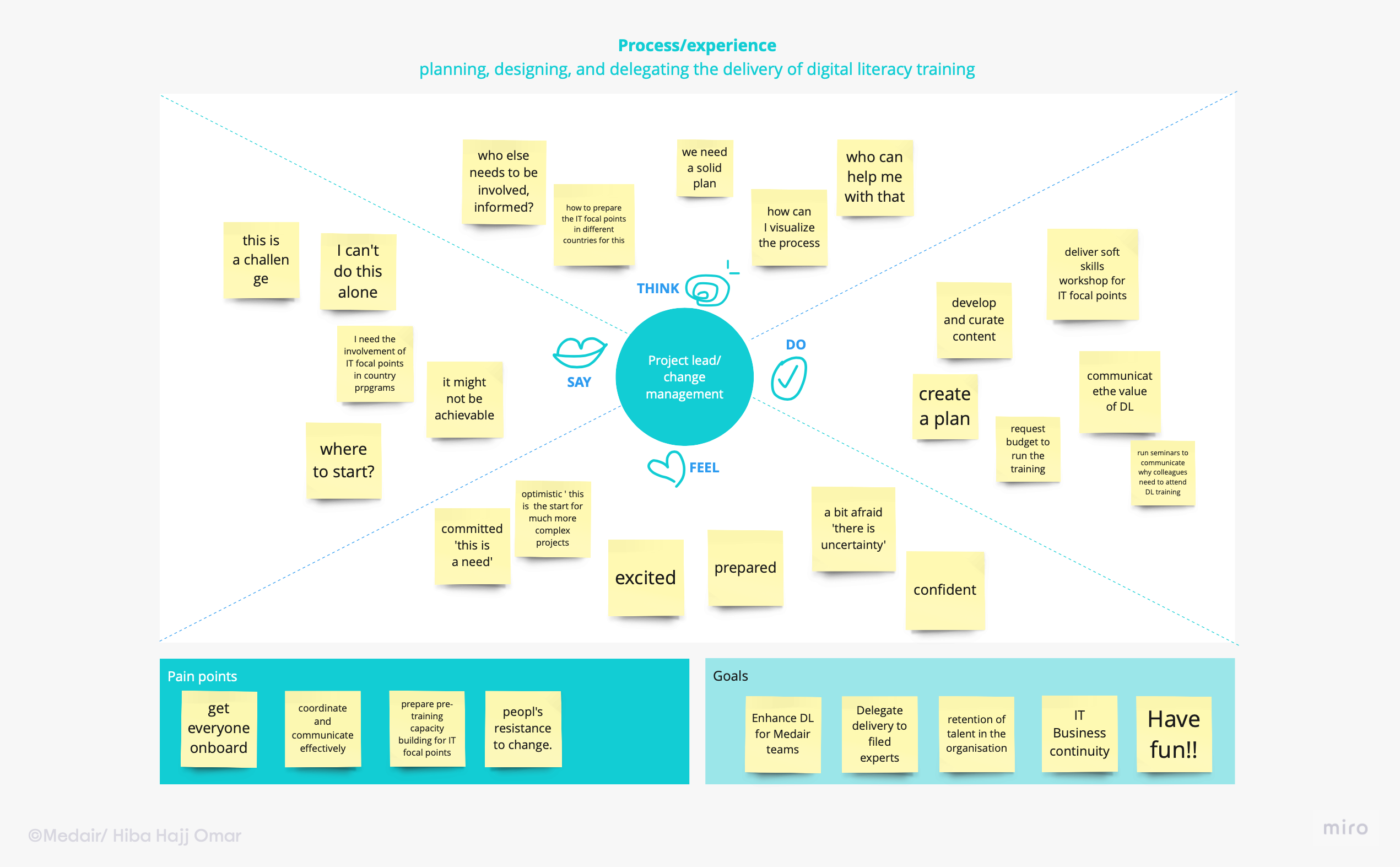Organisational Digital Literacy
Design Research, Digital Transformation
2022
____
Medair is an international humanitarian organization with a mission to help those suffering from the effects of conflict, displacement, and natural disasters. As a senior business analyst with Medair Global Information Technology and Services team, I’ve helped shape and implement digital transformation projects.
THE CHALLENGE
Digital literacy (DL) sets the foundation to bring all digital transformation strategies into life. To get more than 1,500 Medair employees in locations all over the world prepared to use more digital tools, we needed an excellent approach to delegate the delivery of digital literacy training in different places.
IMPACT
“Starting with a full understanding of the employees’ major pain points when investing the time to learn new digital skills has transformed how we designed this program,” shared the digital literacy project lead.
“Instead of asking people to attend theoretical DL training with someone they never met before, we first co-created practical and fun game-based assessments to understand their current level of knowledge. Then we assigned ‘digital literacy champions’ from different country programs to deliver the required training, as they understand the context and culture of their teams much better.”
THE PROCESS
Discovery
In a room full of Medair colleagues who work in the field on different specialties, I facilitated a session on user discovery and empathy mapping. We started by identifying direct users and key stakeholders that would influence the design and delivery of a digital literacy initiative.

We created empathy maps of three core stakeholders.
-
- Medair employees: the main users of the program who have different levels of digital literacy;
- IT focal points in various country programs or digital literacy champions: the educators delivering DL content, and
- Project Lead: who is co-orchestrating the people, content, and delivery of the DL initiative.
Being users of this experience, we could elicit goals and pain points with little assumptions. And then came up with action points to address issues.
Pain points have inspired better questions like – how might we better communicate the value of digital literacy training? and how can we redesign our training approach to make the experience joyful and collaborative?
Asking the right questions translated into hybrid learning, game-like assessments, and a reward system to motivate people to join and share learnings.
Empathy maps of three core stakeholders.





